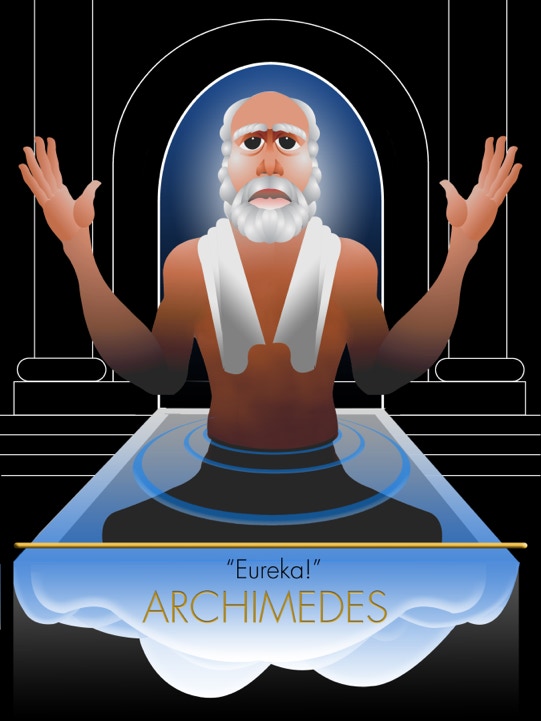Archimedes was a Greek mathematician, physicist, engineer, astronomer, and inventor. Although few details of his life are known, he is regarded as one of the leading scientists in classical antiquity. Considered to be the greatest mathematician of ancient history, and one of the greatest of all time, Archimedes anticipated modern calculus and analytic geometry by applying the concept of the infinitely small and the method of exhaustion to derive and rigorously prove a range of geometrical theorems, including: the area of a circle, the surface area and volume of a sphere, area of an ellipse, the area under a parabola, the volume of a segment of a paraboloid of revolution, the volume of a segment of a hyperboloid of revolution, and the area of a spiral.
His other mathematical achievements include defining and investigating the spiral that now bears his name; and devising a system using exponentiation for expressing very large numbers. He was also one of the first to apply mathematics to physical phenomena, founding hydrostatics and statics. Archimedes' achievements in this area include a proof of the principle of the lever, and the widespread use of the concept of center of gravity. He is also credited with designing innovative machines, such as his screw pump and compound pulleys. Legend tells us that Archimedes discovered his law of buoyancy (what allows objects to float) while bathing in an Ancient Greek bath. He supposedly became so excited that he ran through the streets without his cloths crying “Eureka,” meaning “I have found it.”




